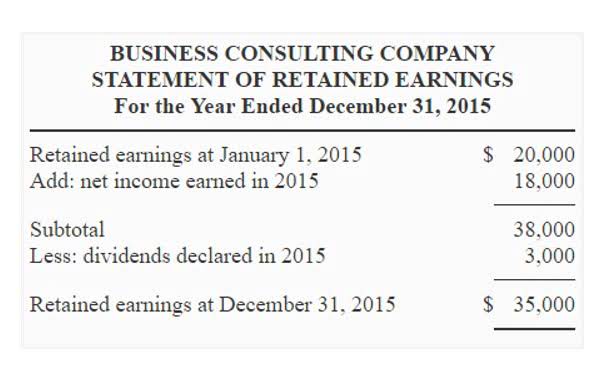
However, if you miss the expiration date on a government-issued check, don’t worry. Contact the federal agency that authorized the Treasury check and request a replacement1. Bankrate.com is an independent, advertising-supported publisher and comparison service.
- They may also charge fees that eat away at a money order’s value.
- Other types of checks can take longer to expire or may not expire at all.
- While payroll, personal and business checks expire within six months, money orders do not have a common expiration date.
- However, it is up to the bank to decide if it will process a stale check.
- But circumstances and bank balances can change drastically in a matter of months, so after some time, there’s less confidence the funds will be available.
- A check with “void” written on it means no one can cash or deposit it.
- Although, each state and financial institution can instate rules like considering old money orders to be abandoned property or charging a fee after a certain amount of time.
Watch out for ‘deposit item returned’ fee
It’s typical for personal checks to expire after six months. This time frame is laid out in the Uniform Commercial Code (UCC), a set of laws that govern commercial transactions in the United States. After six months, it’s generally at the bank’s discretion whether a personal check is retained earnings considered expired. Like many kinds of checks, they’re generally valid for 6 months. Other types of checks, like certified checks or government-issued tax-refund checks, may have a longer expiration or none at all. Cashier’s checks are considered “official checks” that are backed by an issuing bank.
When is a Check Considered Stale Dated?

If a bank does elect to cash or deposit a check for you, this does not mean the balance of the check will be immediately available. Each bank has its own check hold policies, check endorsement requirements, and clearance period. Make sure to cash your federal tax refund check no later than a year from the date it was issued. You can request a new check from state and federal agencies. Note that a nonrefundable service fee may be deducted from the principal amount if you don’t cash a money order within one to three years, depending on the state of purchase. But circumstances and bank balances can change drastically in a matter of months, so after some time, there’s less confidence the funds will be available.

How Can You Tell if a Check Is Expired?
Get more from a personalized relationship offering no everyday banking fees, priority service from a dedicated team and special perks and benefits. Connect with a Chase Private Client Banker at your nearest Chase branch to learn about eligibility requirements and all available benefits. Cashier’s checks can be a little confusing with regards to expiration dates, which can vary based on local laws. If a cashier’s check has a pre-printed expiration or void date, it’s probably best to cash it before then.
What to do to avoid stale dated checks?
A person should know how long they have to cash or deposit the check before it becomes too old. They should act within that time period – to deposit or cash the check. Some business checks will have “Valid For 90 Days” noted on the check. The issuing bank’s stale check policy may not allow them to honor a business check if it is presented after the 90-day period. A “stale” check stale date check — one that hasn’t been cashed within six months of the original issue date — can cause you problems and cost you in bank fees. It’s important to know that when you get a check it may not be valid forever.
There are a few ways you can determine if a check is stale-dated, whether you received the check or have concerns about a check you’ve written. Rather than just reversing the charge in your accounting software and keeping the money, you will need to work through your state’s unclaimed funds laws. Failure to do so may open you up to fines and/or legal trouble. Stop payments are an essential factor as they highlight why bookkeeping is necessary for the success of your business.
- With accounting software like QuickBooks Online, you can accept payments anytime, anywhere.
- But now and then, you may need to write a check to a vendor or receive one as a form of payment.
- Stale checks are the result of the check expiry period passing, which is six months after the check issuance date.
- While personal and business account checks expire after 180 days, other types of checks can have different expiration dates.
- Connect with a Chase Private Client Banker at your nearest Chase branch to learn about eligibility requirements and all available benefits.
What Happens If You Cash An Expired Check?
Business checks often include a note that reads, “Void after 90 days.” This encourages the recipient to cash the check right away—even if the 90-day deadline isn’t real. Like personal checks, business checks are usually good for six months, unless the check clearly states it’s valid for up to one year. After a certain period, the business must report and escheat the funds to the state as unclaimed property. Each state has its own requirements, such as a minimum dollar amount or a minimum length of dormancy. If you forgot to deposit a check and it’s been more than six months since you received it, it might be considered stale. You can try and deposit or cash it, but you risk the check being rejected by your bank or possibly returned from the issuing bank.

However, it’s also possible that your bank might reject the check, and you’ll have to ask for a replacement. On the other hand, your bank might accept the check, but the issuing bank might still reject it. In this case, the check funds may be removed from your account, and your bank may charge you a fee. If you have a problem with a stale or expired check, it’s best to consult with a financial lawyer who can advise you on the best course of action.
Checks from federal agencies are normally valid for approximately a year, but expiration dates for checks from state and local governments may vary. Instead, you will need to ask that the issuer of the check provides you with a new check for the purpose of the payment. In this article, we’re sharing whether you can cash a stale dated check and answering common questions we receive on the topic. This is why it is always best to contact the issuer before attempting to cash a stale or outstanding check. Making the call may be awkward, but accidentally slapping your grandma with a hefty overdraft fee is worse.




